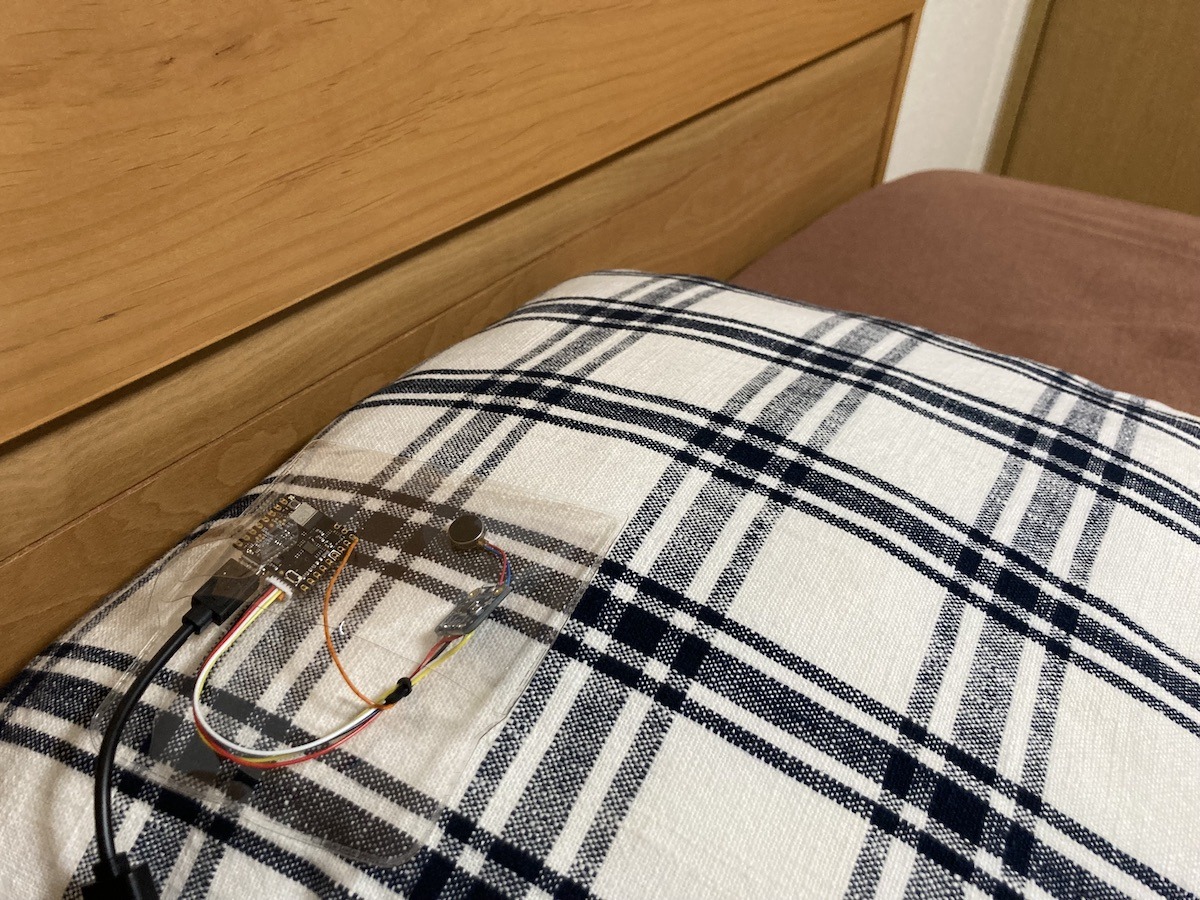An anti-snoring device designed to help people with sleep apnea
An anti-snoring device designed to help people with sleep apnea
Arduino Team — July 26, 2023

Although snoring is a relatively harmless condition, those who snore in their sleep can also suffer from sleep apnea, a potentially serious disorder that causes the airways to repeatedly close and prevent oxygen from flowing. reach the lungs. In order to alert those who might not know they have sleep apnea, Naveen Kumar has designed a small device that uses an Arduino Pro Nicla voice to detect when a person is snoring and gently alerts them via haptic feedback in their pillow.
While many boards have microphones and can run sound recognition machine learning models, the Nicla Voice contains a Syntiant NDP120 neural decision processor which is specifically designed to accelerate deep learning workloads while reducing the amount of energy needed to do so. Besides the board, Kumar added an Adafruit DRV2605L haptic motor driver and a haptic motor to wake up the user without disturbing others nearby.

The model was created by first uploading a snoring dataset that contains hundreds of short snoring or non-snoring samples. After adding them to Edge Impulse Studio, Kumar built an impulse from the Syntiant Audio blocks and trained a model that achieved 94.6% accuracy against the test dataset. The code in the model continuously collects new audio samples from the microphone, passes them to the NDP120 for classification, and triggers the haptic motor if snoring is detected.
To learn more about this project, you can read Kumar's article here.
Categories:NiclaNicla Voice

Arduino Team — July 26, 2023

Although snoring is a relatively harmless condition, those who snore in their sleep can also suffer from sleep apnea, a potentially serious disorder that causes the airways to repeatedly close and prevent oxygen from flowing. reach the lungs. In order to alert those who might not know they have sleep apnea, Naveen Kumar has designed a small device that uses an Arduino Pro Nicla voice to detect when a person is snoring and gently alerts them via haptic feedback in their pillow.
While many boards have microphones and can run sound recognition machine learning models, the Nicla Voice contains a Syntiant NDP120 neural decision processor which is specifically designed to accelerate deep learning workloads while reducing the amount of energy needed to do so. Besides the board, Kumar added an Adafruit DRV2605L haptic motor driver and a haptic motor to wake up the user without disturbing others nearby.

The model was created by first uploading a snoring dataset that contains hundreds of short snoring or non-snoring samples. After adding them to Edge Impulse Studio, Kumar built an impulse from the Syntiant Audio blocks and trained a model that achieved 94.6% accuracy against the test dataset. The code in the model continuously collects new audio samples from the microphone, passes them to the NDP120 for classification, and triggers the haptic motor if snoring is detected.
To learn more about this project, you can read Kumar's article here.
Categories:NiclaNicla Voice
What's Your Reaction?















![Three of ID's top PR executives quit ad firm Powerhouse [EXCLUSIVE]](https://variety.com/wp-content/uploads/2023/02/ID-PR-Logo.jpg?#)







